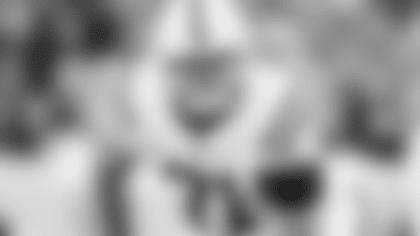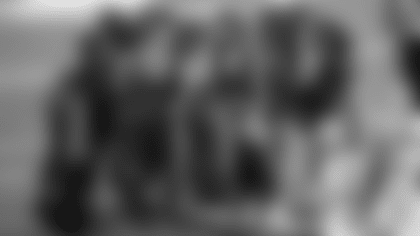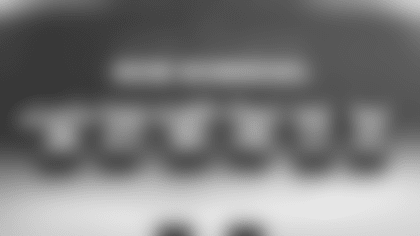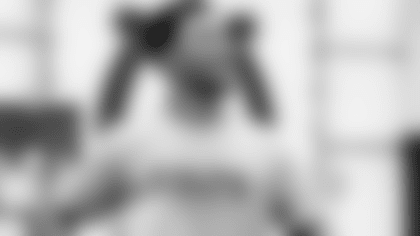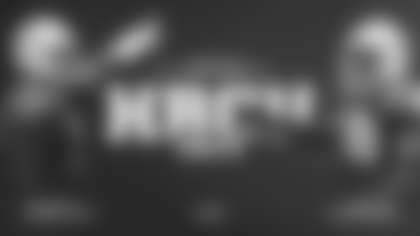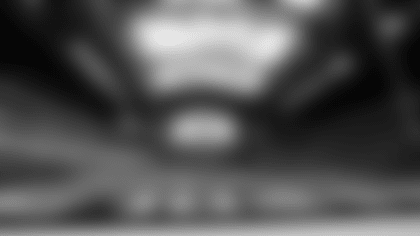INDIANAPOLIS – One constant for Indianapolis in the 2011 season was the consistency of injuries.
The team was battered along the offensive and defensive fronts throughout the season. The Colts started three different quarterbacks because the one player, Peyton Manning, who did not miss a game in 13 years was unable to play.
The secondary was not spared any struggles as well.
Indianapolis employed six different starting alignments in the secondary, none of which lasted longer than a five-game span. Gone early from action was safety Melvin Bullitt, while cornerback Jerraud Powers eventually joined Bullitt on injured reserve, too.
Safety Antoine Bethea was the lone member of the group to open every game and injuries meant opportunity for a number of young players.
Cornerback Chris Rucker was one of those players. Rucker was the club's sixth-round pick and though most of his early-season playing time was spent on special teams, he did get on the field in 15 games, 12 in defensive capacities.
By year's end, Rucker had started the final quarter of the season. He noticed as he gained more time, the game came to him a little bit more.
"At the beginning of the year it was a little fast, but I got used to it," said Rucker. "I started to get more opportunities to play, and that's when it started to slow down for me. By the end of the season, everything slowed down and I could read things better."
Rucker was not alone as a young player in the secondary. Four other teammates made career first starts, too. Joe Lefeged, Terrence Johnson, Kevin Thomas and David Caldwell also were thrust into action, with Caldwell seeing the most time with 13 starts at strong safety when Bullitt was lost.
Defensive backs are taught to have short memories because of the difficult nature of the positions. Rucker was able to do that, but he does look at the past season in total and gauge how to prepare accordingly.
"I thought my tackling was pretty good," said Rucker. "I tackled a lot better than people thought I would. I think that is an area where I was good, and I can build off that next season.
"One area where I think I can get better is with my footwork. I can work on that and get through my breaks (to the ball) better. There are a lot of skills every defensive back can work on no matter where he is in his career. I will go through all those things, and I think I can be better than I was last year."
Rucker learned an approach from the veterans early in the season when he largely was involved on specialty units. He listened when he was told how to prepare, and the advice went hand-in-hand with his internal belief that he would find the field as a rookie.
"At some point, I thought I would be out there near the end of the season more than I was at the beginning," said Rucker. "All the vets would say, 'Stay ready. At some point during the season, you're going to have to play a lot more.' I took that and listened to those guys. I respected their comments. I didn't think it would come as soon as it did but when it did, I felt like I was ready.
"It's the best advice I could have had. Coming out of college, you likely had started most of your career. Getting to the NFL as a rookie, you were putting in practice time on special teams and it was a hard pill to swallow sometimes. Hearing the veterans tell you, 'Keep your head up, stay prepared, pay attention. You will play at some point.' That really helped me."
Rucker produced 32 tackles, 23 solo, two passes defensed and one fumble recovery. He had tackles in eight of the 12 games he played defensively, including 11 and the recovered fumble in the club's victory over Tennessee.
"I think I did okay my first season. I think it went all right," said Rucker. "Of course, there were things I could have done better but for the most part, I think I had a good first year. There were some difficult circumstances (with the lockout). Even though our record wasn't what I expected or what the team wanted, I think it was a good season outside of that."
When he did struggle, Rucker sought the advice of two seasoned performers.
"I talked to most the DBs (defensive backs), but really Jerraud Powers and Antoine Bethea," said Rucker. "Whenever things weren't going my way or I didn't make the play I needed to make, they told me to keep my head up, keep going and don't let it get to you. Playing defensive back, you have to have a short memory and you can't linger too long on things out there. If you do, it hurts your play."
Third-year pro Jacob Lacey started early in last season and hit a performance lull before opening the last five games. Rucker noted Lacey's resilience and banked from his example.
"I learned from him no matter what the circumstances, you can't give up," said Rucker. "You have to believe in yourself. You tell yourself you can make plays. You can, or you wouldn't be there in the first place. That (his rebound) taught me never to doubt myself, just believe in yourself and keep going hard on every play."
He is looking forward to having a spring of practice to prepare for 2012. It was not a luxury provided during his rookie year.
"It (off-season work) will help me because I didn't have it last year," said Rucker. "When we got to camp (last year), we crammed everything together in just a couple of weeks. We were leading up to the season and it was hard to learn. It was such a short time period that having this off-season, a full off-season, it will give me a chance to learn the full defense. I can learn what the coaches want and expect from me. Last year, I thought I did pretty good for a guy who went from not playing a lot to being a starter at the end of the year. Without having a mini-camp, I didn't get to learn everything I needed to learn. I thought I did well for a guy who had to learn on the fly."





